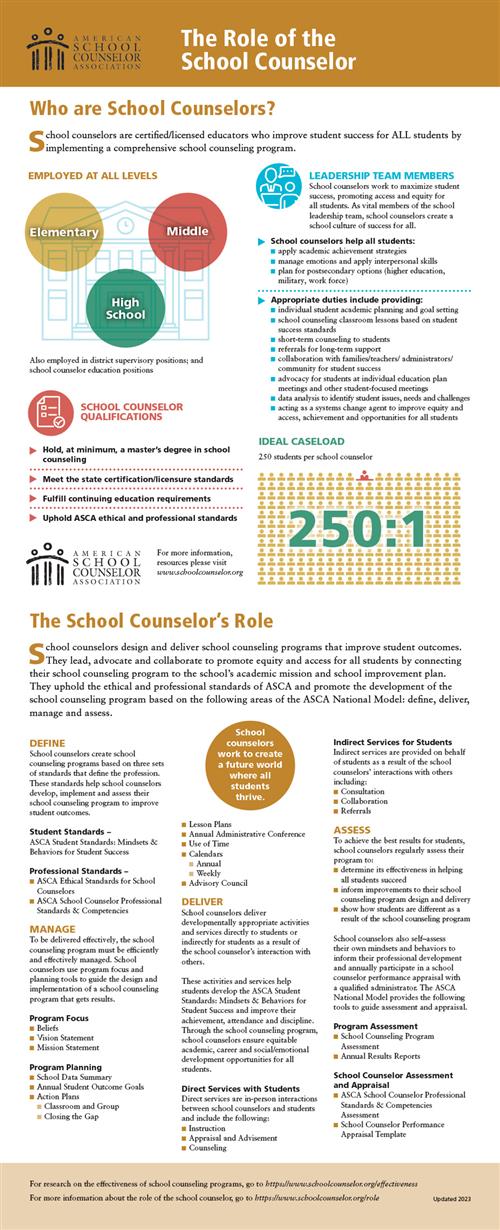- Central High School
- About School Counselors
-
High School Counselors: What They Do and How to Use Their Support
High school counselors are there to help you with both personal and academic challenges. There are two main types of counselors you might work with: Social-Emotional Counselors and Academic Counselors. Below is an easy guide to help you understand what each counselor does and how you can use their support.
Social-Emotional School Counselors
What They Do:
-
Emotional Support: Help students who are dealing with personal issues (e.g., stress, anxiety, family problems, bullying).
-
Coping Skills: Teach you strategies to handle stress, anxiety, and difficult emotions in healthy ways.
-
Crisis Intervention: Assist in emergency situations (e.g., self-harm, emotional breakdowns).
-
Social Skills: Support you in building positive relationships, improving communication, and resolving conflicts.
-
Referrals to Professionals: If needed, they can connect you with outside therapists or mental health professionals.
When to Use Personal Counseling Resources:
-
If you're feeling overwhelmed or anxious.
-
If you're experiencing bullying or social difficulties.
-
If you're going through family or personal challenges.
-
If you need someone to talk to about your feelings or mental health.
Academic School Counselors
What They Do:
-
Course Selection: Help you choose the right classes based on your interests, strengths, and graduation requirements.
-
Monitor Academic Progress: Track your grades and provide help if you're struggling in any classes.
-
College and Career Planning: Guide you in exploring college options, scholarships, career paths, and how to apply for them.
-
Test Preparation: Assist with preparing for standardized tests (e.g., SAT, ACT) and understanding their importance.
-
Create Academic Plans: Help you with strategies for success, including study habits, time management, and setting goals.
When to Use School Guidance for Classes Resources:
-
If you need help choosing classes or deciding what to take next year.
-
If you're struggling with grades or need help improving study habits.
-
If you're thinking about college or want to explore career options.
-
If you're unsure about your future and need advice on what steps to take next.
How to Use These Resources:
-
Set up a meeting: If you need help, don’t wait—set up a meeting with your counselor to discuss your needs.
-
Ask for support early: The earlier you reach out, the more your counselor can help. They can guide you through any challenges, whether personal or academic.
-
Be open and honest: Trust that counselors are there to listen without judgment. They are here to help you succeed.
-
Confidentiality: Most of what you discuss with your counselor, especially personal matters, is confidential (unless there's a concern for safety). This allows you to speak freely about your issues.
Remember: Counselors are here to support you in all aspects of your high school journey, whether you're managing emotions or working toward your academic goals. Don’t hesitate to reach out if you need help—both types of counselors are important resources for your success!
-




